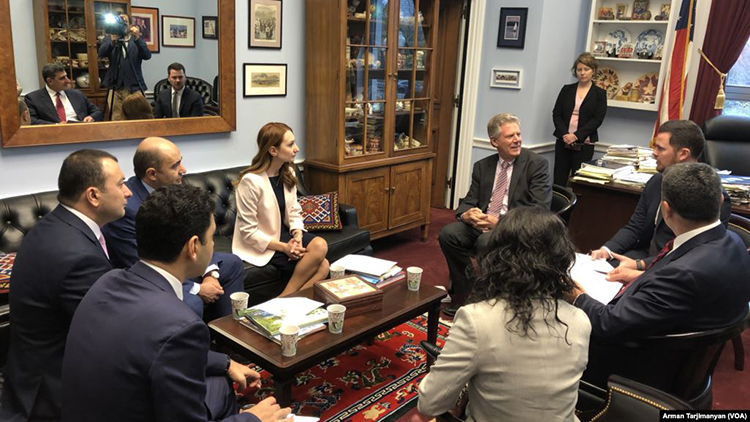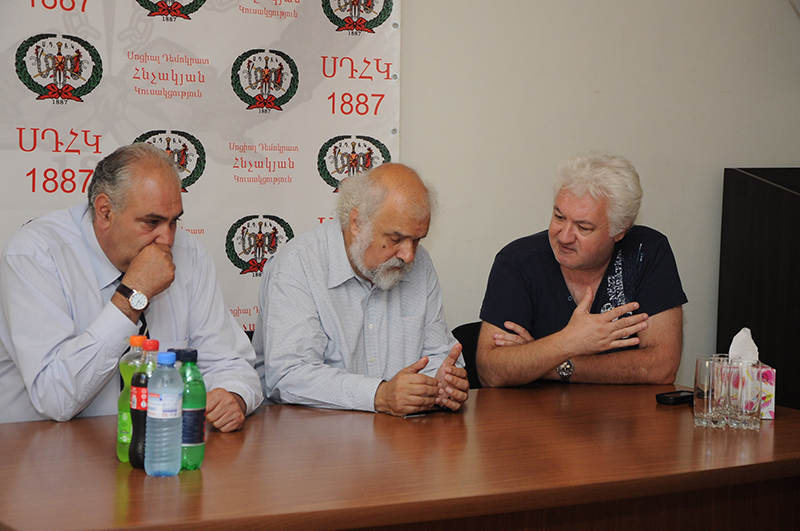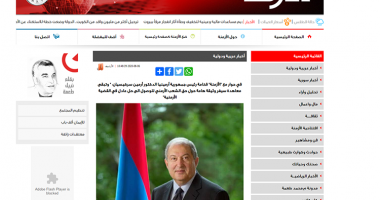WASHINGTON, DC — After the “Velvet Revolution,” Armenian-American relations have grown to a strategic level, which is reflected not only by the executive, but also by the closer cooperation of the legislative authorities, Lilit Makunts, head of the Armenian parliamentary delegation in Washington, told Voice of America. Prior to the meeting with Rep. Frank Pallone (D-NJ), the head of the parliamentary majority says that Armenian parliamentarians plan to intensify relations with the American side in a number of ways:
“We, as parliamentarians, attach great importance to giving these relations, this strategic dialogue some content from the point of view of parliament.”
Prosperous Armenia MP Vahe Enfiajyan, My Step Alliance member Tatevik Hayrapetyan and Edmon Marukyan, head of the “Enlightened Armenia” faction are also a part of the Armenian delegation.
The first official meeting of the delegation was with Congressman Pallone, Co-Chair of the Armenian-American Friendship Group, during which the parliamentarians expressed special gratitude to the Congressman for the work done in passing the H. Res. 296 recognizing the Armenian Genocide. “Armenia has warmly responded to this important decision of the Congressman,” Lilit Makunts said during the meeting.
“When House Speaker Nancy Pelosi told us that the resolution would be put to the vote, we couldn’t hold back tears,” the Congressman responded.
According to Pallone, free and transparent parliamentary elections and democratic reforms following the “Velvet Revolution” in Armenia have significantly elevated the country’s rating in the US, opening up new prospects for bilateral cooperation.
“During this visit, we plan to discuss with our Armenian counterparts the prospects of strengthening bilateral relations in various fields. We are talking about cyber security, communication, but also about intensifying trade and economic relations, increasing the role of the Armenian parliament. ”
In Washington, for three days, Armenian parliamentarians will meet with representatives of the upper and lower chambers of the US Congress, as well as participate in discussions in US state agencies and NGOs.










